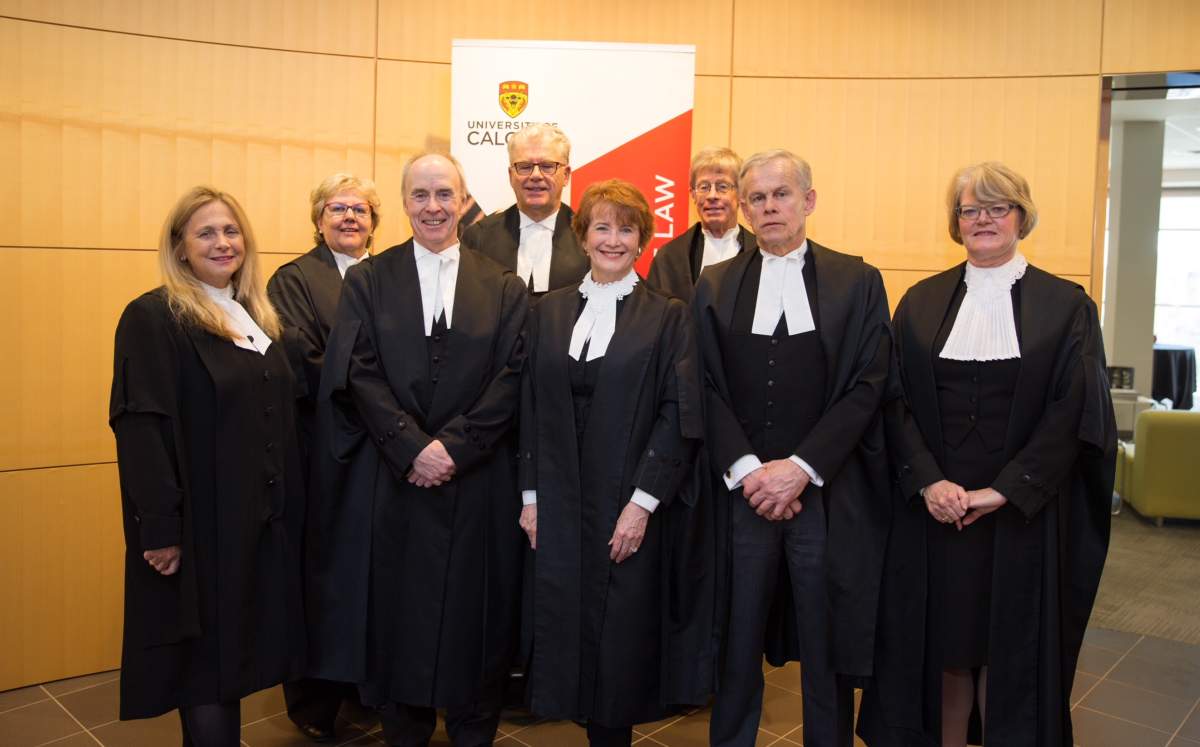The newest addition to the Supreme Court of Canada will be Sheilah Martin.

Prime Minister Justin Trudeau announced Wednesday morning his nomination of Martin to fill the seat on the Supreme Court that will be left vacant when Chief Justice Beverley McLachlin retires on Dec. 15.
Martin, born and raised in Montreal, was appointed a judge on the Courts of Appeal of Alberta, the Northwest Territories and Nunavut in the summer of 2016, and prior to that served on the Court of Queen’s Bench of Alberta in Calgary since 2005.
READ MORE: Chief Justice Beverley McLachlin to retire from Supreme Court
She was called to the Alberta Bar in 1989 and has spent the majority of her legal career practising there after earning a Bachelor of Civil Law and a Bachelor of Common Law from McGill University in 1981 as well as a Master of Laws from the University of Alberta in 1983.
She also received a Doctorate of Juridical Science from the University of Toronto in 1991.
From 1996 to 2005 she practised criminal and constitutional law, and acted pro bono for the Women’s Legal Education and Action Fund (LEAF) as well as the Alberta Association of Sexual Assault Centres in cases that went to the Supreme Court.
READ MORE: Sheilah Martin’s candidate questionnaire
She was also part of the team that contributed to the Indian Residential Schools Settlement Agreement and listed the experience in her candidate questionnaire, which was submitted as part of her application for the position, as among the five most significant cases of her career.

Get breaking National news
“This was among the most meaningful and challenging work of my career,” she wrote in the questionnaire of the settlement agreement. “Even though I had studied equality rights, I was confronted by how privilege had insulated me from being fully aware of what had truly happened in residential schools.”
Martin also worked on the team that won $10 million in compensation for David Milgaard, who was wrongfully convicted of the rape and murder of Saskatchewan nurse Gail Miller in 1969 and served 23 years behind bars before being exonerated.
As a trial judge, she also worked on cases involving assisted death and presided over the trial of Dustin Paxton, who was convicted of torturing and starving his roommate, and which was one of the first times that Canadian journalists were permitted to use instant messaging from within the courtroom during proceedings.
Prior to that, she taught law at the University of Calgary, including courses ranging from commercial transactions and feminist legal theory to advanced constitutional law.
In her application, Martin also remarked on her time spent studying at McGill and how it helped her gain a better understanding of the complexities of Quebec society as well as develop her views on societal differences.
“Difference is a comparative concept and we are all equally different from each other,” she wrote. “The key is to remain attuned to the consequences that may attach to the difference and to appreciate that many differences are more constructed than real. I came to understand the need to look for any unstated norm, and how the ‘other’ can be used not only to divide, but to stratify as well.”
Her 30-year legal career has focused on education, equality rights and getting more individuals from Indigenous communities into law careers.
She has been awarded the Distinguished Service Award for Legal Scholarship, the Law Society of Alberta’s Certificate of Merit, and the YWCA’s Advancement of Women Award.
A special meeting of the House of Commons Standing Committee on Justice and Human Rights will meet on Dec. 4 for an appearance by Justice Minister Jody Wilson-Raybould and a representative from the Independent Advisory Board for Supreme Court of Canada Judicial Appointments to explain why she was nominated, and will then take part in a question and answer session with Martin on Dec. 5.












Comments
Want to discuss? Please read our Commenting Policy first.